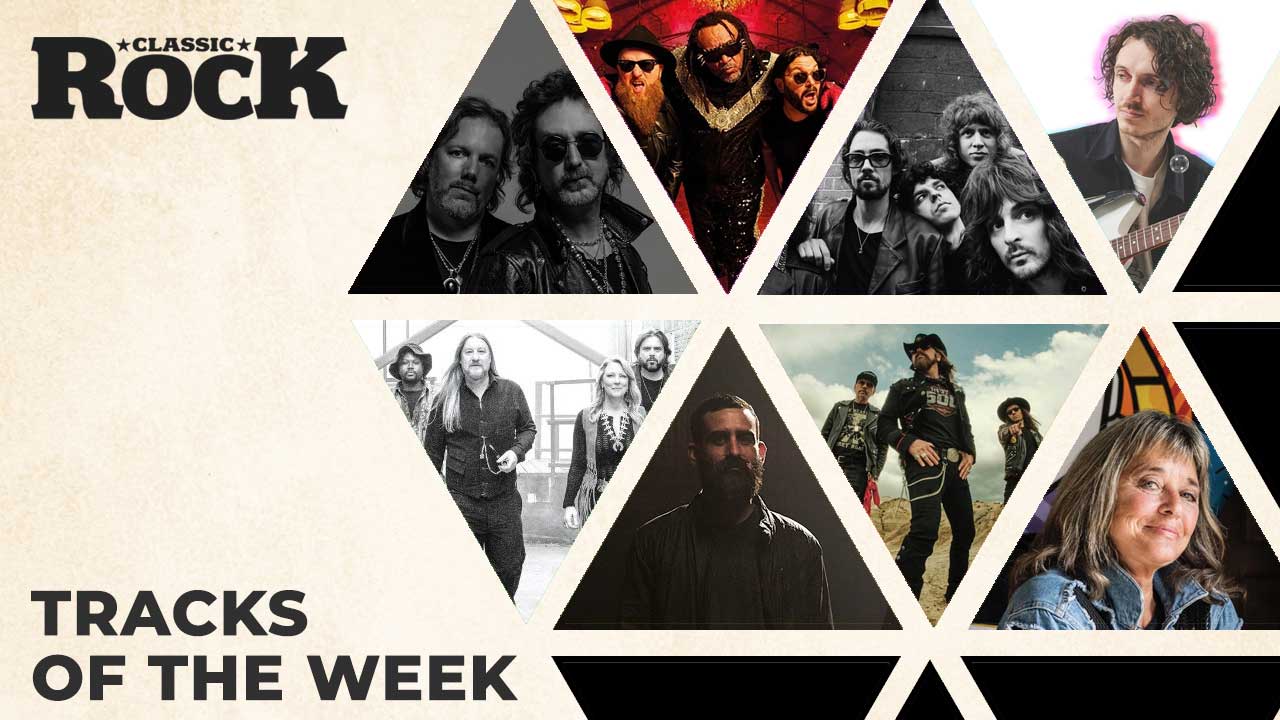“My mum said, ‘What about the drink and drugs and wild women?’ I said, ‘That‘s what I want to do this for!’”: the life and times of Bernie Marsden, British blues-rock‘s secret weapon
In 2020, Classic Rock sat down with late ex-Whitesnake guitarist Bernie Marsden to talk fistfights with UFO, patching things up with David Coverdale and meeting James Bond
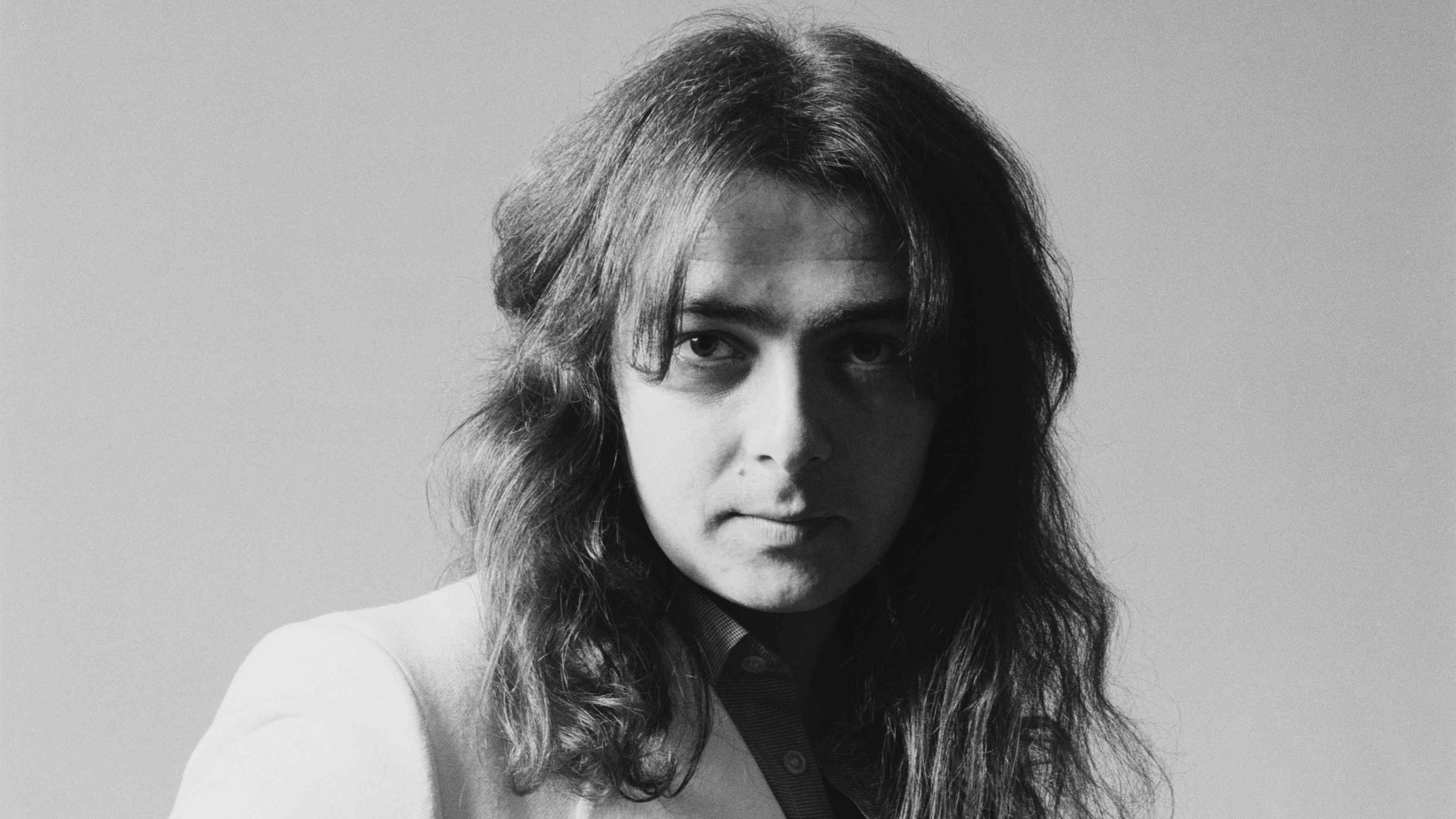
Bernie Marsden may have been best known as the guitarist and songwriter with Whitesnake back when they were one of the most exciting blues rock bands on the planet, but his CV was as extensive as his playing was revered.
The Buckingham-born Marsden, whose death at the age of 72 was announced on August 25 started out on the late 70s club scene. Either side of his stint with the David Coverdale-led band from 1978 to 1982, he played with UFO, Wild Turkey, Cozy Powell’s Hammer, Paice Ashton Lord, Alaska, MGM and the Company Of Snakes.There were plenty of solo albums too, including And About Time Too!, Big Boy Blue and Tribute To Peter Green: Green And Blues, plus great friendships with some bona fide legends.
But it’s his work with Whitesnake, the band he co-founded with David Coverdale and Micky Moody in 1978, which remains his calling card. During his four-year stint in the band, they recorded classic albums such as Come An’ Get It, Saints & Sinners and Live… In The Heart Of The City. Marsden also co-wrote their biggest international hits, Here I Go Again, which topped the US chart in 1987 in re-recorded form, five years after its initial release.
Back in 2020, Classic Rock sat down with Marsden to look back over his eventful life and illustrious career. Cue tales of ex-Beatles, surreal pub games with AC/DC, hanging out with James Bond, making peace with Coverdale and waging war on UFO.
“I’m lucky to have had the pleasure to work with so many people,” he told us. “And it really was pleasure. Well, most of it, anyway.”

Who was the first guitarist to really capture your imagination?
I loved Hank Marvin in The Shadows as a kid, but Eric Clapton was the first guitar player I really adored, because I was old enough to relate to it. George Harrison comes into this as well, then it was Peter Green.
Sign up below to get the latest from Classic Rock, plus exclusive special offers, direct to your inbox!
I saw Fleetwood Mac on so many occasions. In 1968 I travelled down to North London to see them at a pub on the Seven Sisters Road, just after the first album had come out.
I got there early and helped out the roadies with the gear, then shuffled off into the corner. Somebody must’ve told Peter that I’d helped out, so later on he came over and said: “You look like you could do with a beer.” Then he sat down and chatted. It was such a great moment.
You weren’t academic at school, so was playing music always going to be your career?
I think I could’ve been academically good, but that would never have been brought out in the school I went to. Once I’d had a taste – when people would take me to pubs when I was fourteen or fifteen because there was a band playing – that was it.
Getting other jobs, like working in a hairdresser’s, was just to please my parents. In 1967, when they asked you what you were going to do for a job, you couldn’t turn round and say: “I’m going to play the guitar, mum.”
Did your parents accept your chosen career?
They were always very supportive, because they realised that I could play quite well and other people had told them so. But when I did come in one day and tell them I was turning professional, that was a worry, especially with my mother. She was like: “What about all the drink and drugs and wild women?” I told her: “That’s what I want to do it for!”
Your band Skinny Cat, which you formed when you were seventeen, seemed bound to fail, but was it a good grounding for you?
They were the typical big band in a small goldfish bowl. Even I knew that it wasn’t meant to be. Everybody could play well, but the drummer was married with two kids and needed his thirty quid a week. Then the bass player told us that he was taking over his dad’s garage.
So it was inevitable that I would be gone. And people kept saying: “You’re a really good band, but you’ve got to start writing your own material.” The other guys weren’t interested in that, so I decided to start auditioning for ‘name’ bands.
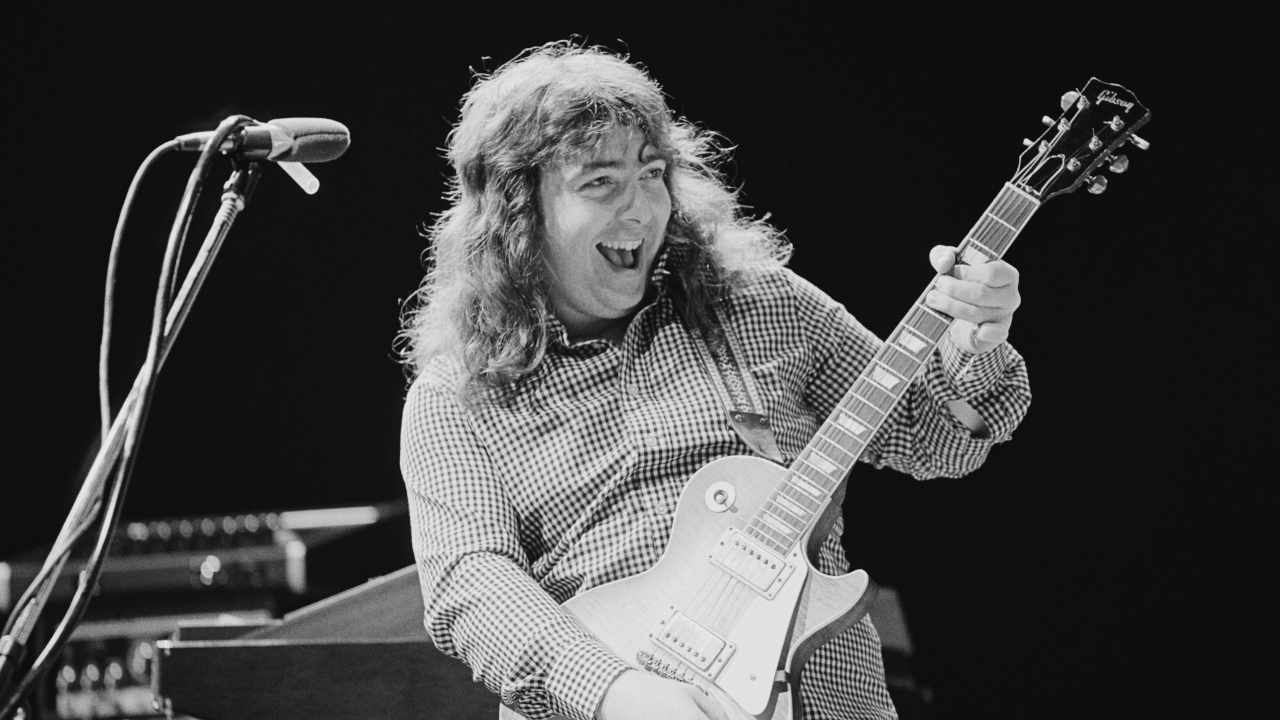
You successfully auditioned for UFO in 1972, but you didn’t really get along with them – the country boy outsider among a group of Londoners. Did that discourage you at all?
I was naïve and green, and thought that joining a pro band and moving to London was going to be like the cover of a Beatles EP, with everyone jumping in the air and being happy. It turned out to be anything but.
At the same time, without that break you and I wouldn’t be talking today. But it was pretty bad at the time. When you’re seriously considering packing it all in, after only ever wanting to do this, what are you going to do? The answer is to join another band.
When you were in UFO it got physical at times, with fisticuffs on stage at a gig in London in 1973.
Looking back, it was unbelievable, really. You think: ‘Did that really all happen?’ Some nights it was even worse than that. I ended up travelling solo to gigs, I didn’t travel in the same car as the rest of the band.
Around that time, you shared a house in Shepherds Bush in London with Mott The Hoople’s Mick Ralphs. You were privvy to David Bowie’s demo of All The Young Dudes, right?
He said: “What do you reckon to this song? David Bowie sent it to us.” It sounded great just as it was – Bowie and the Spiders – so I think Mott just went in and copied the demo. Mick also had a cassette of [Bad Company’s] Can’t Get Enough, which Ian Hunter had turned down for Mott The Hoople. Mick said to me [adopts thick Herefordshire accent]: “’Ere Bern, what do you think of Paul Rodgers? He wants me to form a group with him.”
I went: “Well if you don’t do it, Mick, will you put me up for it?” “I’ll give it a go, then,” he said. It wasn’t like he was reluctant, he just wasn’t really happy with Mott. And the rest is history.
You say that Paice Ashton Lord was the first real big-time band you were involved with. Did that feel like an important step?
I suppose so, but that’s more to do with Rolls-Royces. Jon Lord used to drive me around in his, and I’d always be pointing at things and going: “What does this do, Jon?” I must’ve annoyed the hell out of him. But he was lovely.
I’d already played in Cozy Powell’s Hammer and done session work for Mickie Most, but the big step up was between Babe Ruth and Paice Ashton Lord. That’s when I said to myself: “I’ve got to keep myself together here.” Paice Ashton Lord turned out to be a flash in the pan, although it’s one of the best things I’ve ever done.
Were Jon Lord and Cozy Powell particularly important figures in your life?
Absolutely. And as people, first and foremost. Both of them were intelligent, realistic and easy to work with. They were guys you could take any problem to, whether you were worried about a song bridge or how to fix the tyre on your car. Cozy was best man at my wedding. The hardest thing with Jon was trying to get him to take credit for anything.
I think he only has one credit with Whitesnake, on Outlaw, and I more or less insisted he take that one. He’d always say: “If it wasn’t for those chord changes I would never have thought of it. So it’s all down to you, dear boy.”
You became good friends with George Harrison after Jon Lord had introduced you to him. What was he like to hang out with?
He was terrific. I never stopped pinching myself, really, because he was the man. George invited me to [Harrison’s mansion] Friar Park and ribbed me about my fondness for Beatles memorabilia and trivia. Then he took me into his studio and showed me the Fender Stratocaster that he’d played on Magical Mystery Tour, plus his Sgt. Pepper suit.
It was magical. I remember him saying to me once: “You’ve been in a lot of bands, haven’t you? I envy you for that, because I was only ever in one.”
In 1976, your rehearsals with Paice Ashton Lord at Pinewood Studios coincided with the filming of the James Bond film The Spy Who Loved Me. Is that when Roger Moore popped in?
He was fascinated by my twin-neck guitar. He said: “How the hell do you play that?” I remember turning to him and going: “James Bond could play it,” and he really laughed. I showed him how all the band stuff worked and he had such a nice time. He ended up saying: “Thank you so much for showing me around. Why don’t you visit the set?” I didn’t realise at the time that the Bond set was closed, so I was honoured when he showed me around.
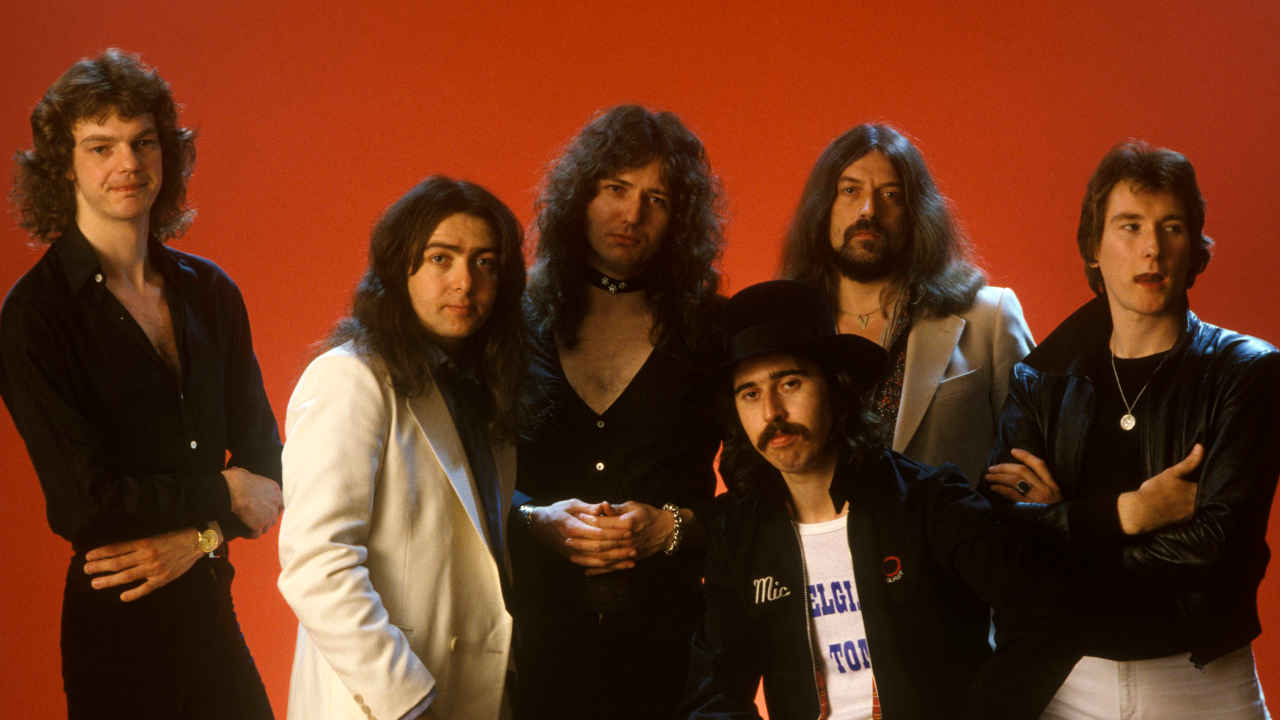
You first met David Coverdale at a studio in Munich, recording the Paice Ashton Lord album. Did you click straight away?
There was an instant rapport between us. He was like a surrogate brother to me. Neither of us had any brothers or sisters, we were born in the same year, and even though we grew up two hundred miles apart we discovered we had the same influences; once I started talking about Howlin’ Wolf he was all ears. But he didn’t know how I played until he was putting Whitesnake together and I went to the audition.
All he knew was that I’d been a session guy and had made all these records with different people. The Paice Ashton Lord album is very controlled and slick. There’s no great blowing in it, it’s all about the songs and arrangements. So when I started playing freely at rehearsal, David took me to one side and said: “Erm, can I have a word? I had no idea you played like that.” That’s how it began.
Your suggestion to cover Bobby Bland’s Ain’t No Love In The Heart Of The City turned out to be a key moment in Whitesnake’s trajectory.
That song is as important as anything Whitesnake have ever done. I’d always been a big Bobby Bland fan, and I’d been playing that album [1974’s Dreamer] for about a year already. When it came time to rehearse, I said to David: “There’s this great blues song by Bobby Bland. I’ll bring it in.”
We ended up getting the lyrics wrong, which was my fault because I didn’t copy down the correct middle eight. But our version is so popular that many people still think it’s a Whitesnake song.
You struck up a friendship with BB King in the late seventies. Wasn’t Whitesnake’s Fool For Your Loving originally intended for him?
It was written with him in mind, for sure. Around about that period when BB did those really funky albums, we thought we’d do a song for him. But by the time we’d got through two thirds of Fool For Your Loving, the record company had heard it and gone: “No, no, no. This has got to be a Whitesnake song.” So I think we just kind of caved in to them.
Whitesnake’s Here I Go Again changed your life. Where did it come from?
It took maybe two hours. I wrote it in my first house and put it all together on an old Revox tape machine. I’ve still got the demo around somewhere. It was pretty much done, but I couldn’t quite finish it off. So when we were at Clearwell Castle [Whitesnake’s rehearsal space and studio in Gloucestershire] I didn’t want to present it to David until it was in some semblance of a better order.
It was the opening sequence that grabbed me, the three opening chords. I had the melody in my head, and when I played it to Jon Lord he had a certain look in his eye. He made me play it again and then said: “You’re a clever little sod, aren’t you? That’s the hook. I’ll do the intro.”
That’s why the original version started off with Jon at the Hammond. It all came together pretty quickly. And when I played it to David he got really excited. He went to his room and rewrote and rearranged the lyrics. I had no problem with that at all, because that’s how we were writing in those days, fifty-fifty.
You cite a Whitesnake gig at Liverpool Empire in June 1980 as a particular favourite.
There are certain moments in your career that feel like turning points. At the Empire that night I was almost blown away by the reception we got. I remember physically taking a couple of steps back as we walked out. The response was just overwhelming and the noise just got bigger and bigger. I was watching everything going on as I was playing, thinking to myself: “This is the band that you always dreamed you would be in.”
Do you have fond memories of touring Germany with AC/DC later that year?
I had no idea how big AC/DC were at the time, because I’d last seen them at the Marquee years earlier. We opened the first night and there were about eight thousand people. We got to the gig for the soundcheck, and there was this English pub all set up backstage – dart board, pool table, bar, pipes, glasses, beer mats, everything. Between sets we’d be playing darts. I might be teamed up with Malcolm or Angus and we’d be playing Brian Johnson and Ian Paice.
The crowd would be going nuts outside, screaming: “AC/DC! AC/DC!” Then just at the point when you thought there might be a riot, the bell would ring, they’d put the darts away and off they’d go. It was just amazing. I stood and watched them every night. I think it was one of the greatest rock’n’roll bills of all time.
Do you think Whitesnake fulfilled their potential?
The big regret for me is the original band not breaking America. Maybe these things are meant to be, because we were huge everywhere else. If David hadn’t broken his leg in Saarbrücken on the AC/DC tour [December 1980] – just before we were due to go to the States with them as well – I fully believe that we’d have done the same in America as we had in the rest of the world.
You also cite bad management as a major factor in the original band’s demise. Does that still rankle?
Not really, because it was a long time ago. I only really started to see royalties after taking the company to court many years later. But during the time I was in Whitesnake all I ever earned was a small monthly salary. It didn’t matter if we did ten gigs or twenty-nine gigs, the money was the same. And we all got paid different amounts, which we weren’t aware of back then.
You were only thirty when Whitesnake fell apart. It seems to have ended through apathy, generally, although David had plans to do his own thing, without any of you knowing.
He had to have a plan in order to be able to continue Whitesnake, without the rest of us. People still say to me: “You must’ve hated him”, but that feeling never really comes into it. I hated the situation we were in as much as anybody, and I knew we were going nowhere with [management company] Seabreeze, so I was wondering what might happen if I didn’t sign with them again.
That’s how demented I was. I was thinking: “I’m thirty years old, I’m finished.” Cozy Powell was very good for me at that time, because he’d come around and slap me around mentally: “Pull yourself together! You write, you play guitar, you sing. Stop feeling sorry for yourself and get on with it.”
Was there ever a time when you felt like quitting music completely?
I had a few moments. I have Yamaha Music to thank. Because when I was more down than I realised, I went to Japan for two weeks to do a Bernie Marsden guitar clinic. I was still a big name there and my first solo album had done very well in Japan. They looked after me really well, which got me over that initial shock [of leaving Whitesnake].
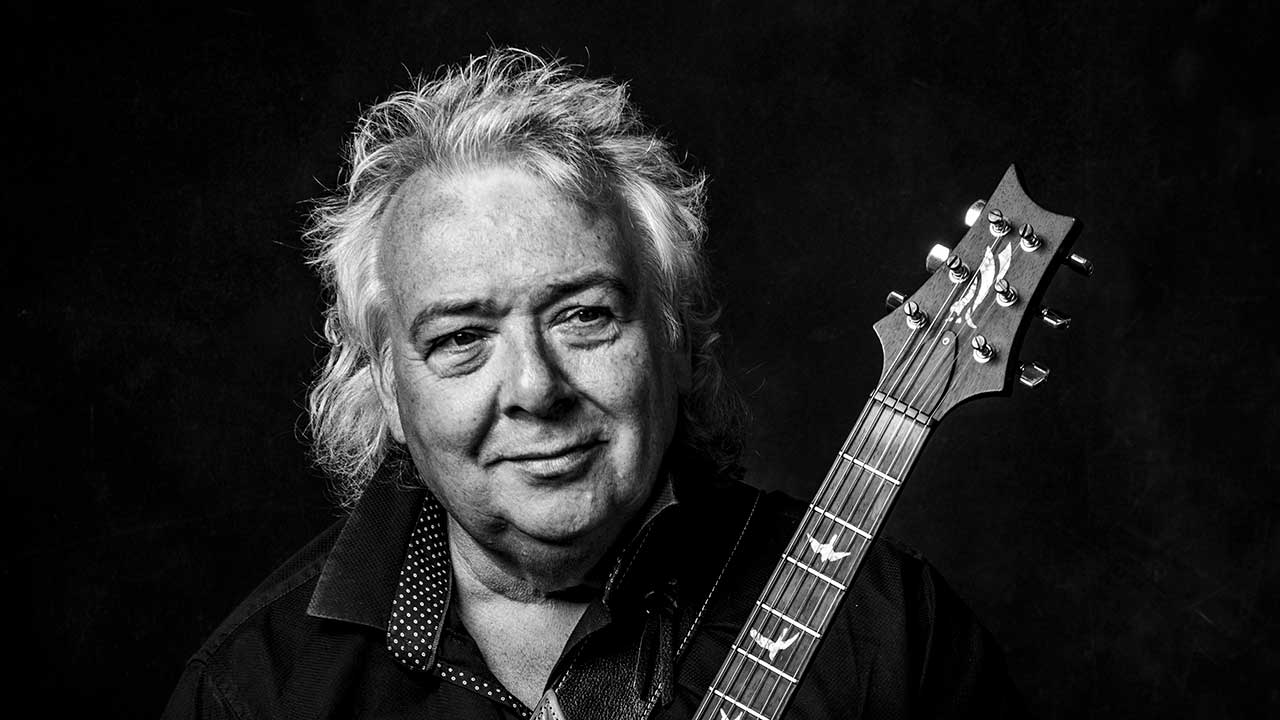
You reunited with David Coverdale at the Sweden Rock Festival in 2011. Did it feel like some kind of closure for you?
I think so. The last conversation we’d had about Whitesnake, as the band was breaking up, was that he and I should still write together. But that never happened. And I think that is a really big mistake, because we were pretty good writers.
I think David is one of those guys who, if he’s seen to be asking me for another hit song, wonders whether he can do it without me. He’s done very well for himself and has built that band into a huge name. There have been some good songs too, but I would like to think that we could’ve written another few.
Looking back, do you think you need a combination of talent and good fortune in order to make it?
I think if you’ve got the talent, luck will fall your way. Opening for Cozy Powell with Wild Turkey was serendipity, but that didn’t get me the gig with Paice Ashton Lord. And did I get that gig because I was the only guitarist who didn’t play Smoke On The Water at the audition? Or because all the other players tried to be Ritchie Blackmore? I’ll never know.
All I’ve ever tried to do is play a show with as much honesty as I can, because without the people who put their hands in their pockets and come to gigs, there’s nothing left.
Freelance writer for Classic Rock since 2008, and sister title Prog since its inception in 2009. Regular contributor to Uncut magazine for over 20 years. Other clients include Word magazine, Record Collector, The Guardian, Sunday Times, The Telegraph and When Saturday Comes. Alongside Marc Riley, co-presenter of long-running A-Z Of David Bowie podcast. Also appears twice a week on Riley’s BBC6 radio show, rifling through old copies of the NME and Melody Maker in the Parallel Universe slot. Designed Aston Villa’s kit during a previous life as a sportswear designer. Geezer Butler told him he loved the all-black away strip.

